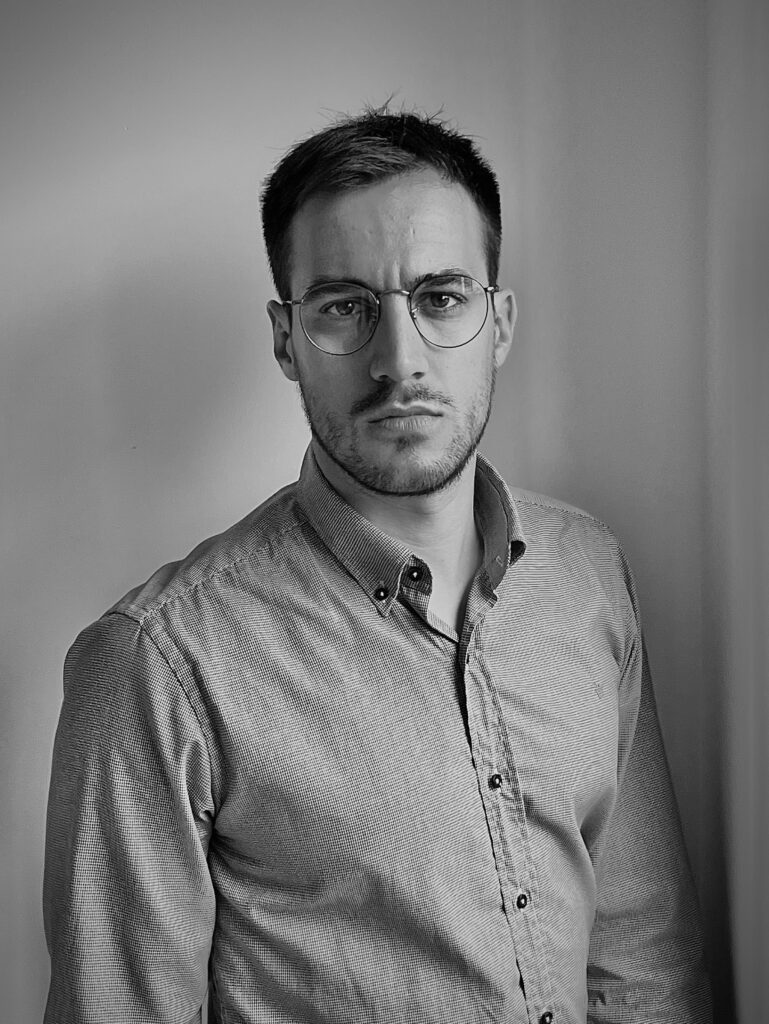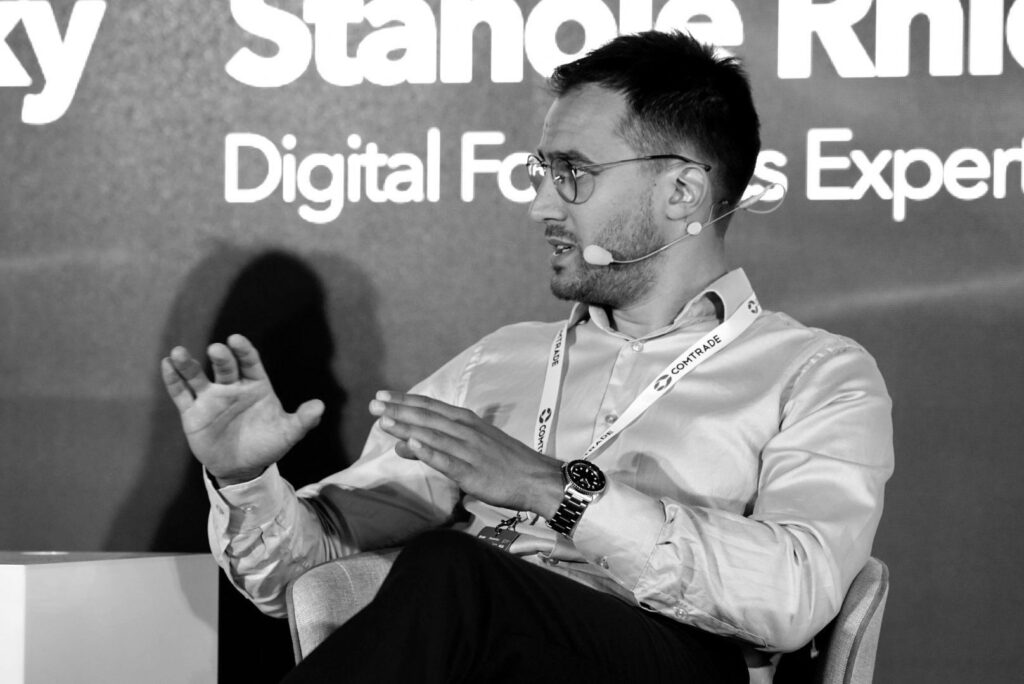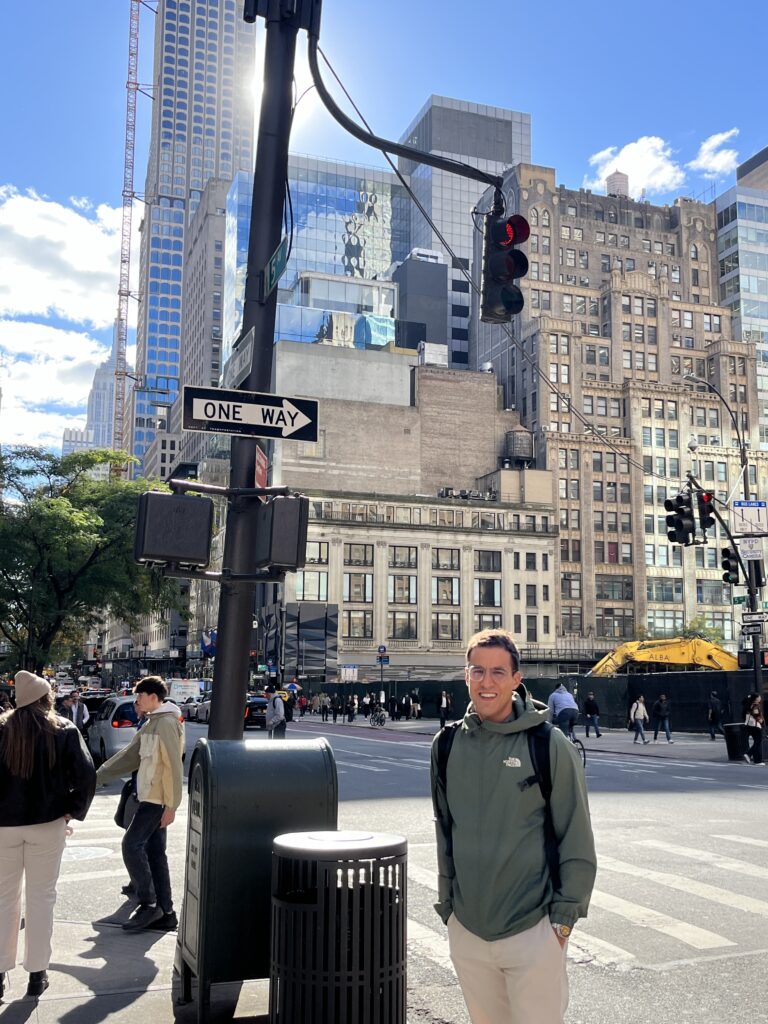As the Digital Forensics Conference approaches us, taking place in Sava Centar on November 12th & 13th, we had the opportunity to talk to Stanoje Rnić, the Co-Founder of this conference and the CEO and Head of Investigations of Archibald Intelligence, on the origins and goals of the DFC, his personal history in combating cybercrime, his motivations for choosing this line of work and many other important questions about the safety of the digital world

As the CEO and Head of Investigations of Archibald Intelligence and a Co-Founder of the Digital Forensics Conference, could you give us some background about the origin of this initiative and how it came to be?
I’ve been involved with computers since childhood, starting in the early 2000s with IRC, creating bots like Eggdrop, and running game servers. Through this experience I learned about the risks in the digital world, which sparked a drive in me to find solutions to the online threats and combat malicious actors online. This passion led me to pursue studies in criminal investigations at the University of Criminal Investigation and Police Studies in Belgrade.
During my studies, particularly professional placements that we had to complete, I realized there was a significant gap in the capacities of both public and private sector entities to effectively fight cybercrime. As a natural response, soon after graduating I founded the Archibald Initiative aiming to arm law enforcement agencies and prosecutors with the skills and tools needed to combat sophisticated cyber threats. Shortly after, I launched Archibald Intelligence, a company specialized in cybercrime investigations, in response to an increasing number of private investigation requests. Today, these two entities are recognized as leaders in the fight against cybercrime across Southeastern Europe, with our work and global events drawing attention from across the industry.
What is the main goal that the Digital Forensics Conference aims to achieve with this event? What can the audiences expect to see?
We launched the Blockchain Forensics Forum as one of Europe’s first events dedicated to blockchain threat tracking. After three successful editions of the Forum, it evolved into the Digital Forensics Conference, a leading European event in the field digital forensics.
Our mission is clear: to become global leaders in digital forensics.
In just over two years, we have succeeded in bringing some of the world’s most distinguished experts in the field of digital forensics and cybercrime investigations to Belgrade, including experts from the leading agencies like the FBI and HSI. We delivered over 10 workshops which attracted over 300 participants from over 15 countries.
This year, participants can expect top-tier content and valuable networking opportunities. We will be covering all the hot topics, including blockchain forensics, cybercrime investigations, abuse of artificial intelligence and machine learning, fraud detection, anti-money laundering, threat intelligence, and incident response. We are particularly proud that this year’s conference is organised in partnership with the Ministry of Interior of the Republic of Serbia, which makes our event unique in the region and beyond.
We have prepared an exclusive line-up of speakers, including Christopher Wong, Special Agent at the FBI who led the investigation that resulted in the largest US government seizure of cryptocurrency to date, and Adi Albocher, Head of the National Cyber Center at the Israeli Police who has trained hundreds of police officers in cybercrime techniques. Additionally, Vladimir Grabulov, Head of Forensic, Internal Audit and Compliance at KPMG will deliver a workshop dedicated to corporate fraud forensics.
We invite all experts from public and private sectors to join us in Sava Centar on November 12-13 for an exciting round of discussions and workshops.
 How would you describe your line of work to someone that isn’t well versed on topics such as cybercrime investigations and digital forensics?
How would you describe your line of work to someone that isn’t well versed on topics such as cybercrime investigations and digital forensics?
Digital forensics is an incredibly dynamic and captivating field. Imagine combining detective work with cutting-edge technology, uncovering information hidden within computers, phones, and networks. It’s a profession that keeps you on your toes every day, bringing new challenges that requires technical expertise combined with thorough understanding of criminal psychology and a investigation strategy and tactics. Beyond just understanding how systems work, it’s about uncovering criminal behavior and motives in the digital realm. To thrive here, you need a true passion for solving puzzles and a strong commitment to justice, making it one of the most exciting, impactful careers out there.
You’re currently participating in the State Department program in America (YTILI), could you share with us some details about your role there, about the program and its importance for prevention of cybercrime?
YTILI is a prestigious State Department initiative that brings together top European innovators to the United States for advanced training in business development and industry networking. Through the program, I’ve had the opportunity to share insights and strategies on combating and preventing cybercrime, foster cross-border collaboration, and engage with key cybersecurity stakeholders. Living in the U.S. has not only strengthened existing industry relationships but also opened doors to new partnerships, which will greatly benefit our work back in Serbia. This experience has been invaluable for building international alliances and enhancing skills essential to addressing global cyber threats.
What was your primary motivation for choosing this career?
My motivation comes from the deeply engaging nature of this field. Even though I’m constantly thinking about cases, both during and outside work hours, it never feels like a burden. It’s a passion-driven commitment that keeps me fully engaged and dedicated, which I believe is the most fulfilling approach anyone can have in their career.
What would you pick as the biggest challenges in your field of work and what would you pick as your proudest milestone during this time?
The biggest challenge in cyber investigations is continuously finding the right approach to solve complex, evolving problems. Cybercrime is constantly shifting, with new tactics and technologies emerging all the time. Staying ahead requires not only technical skill but also adaptability and strategic thinking, as every case brings unique challenges.
As for my proudest milestone, it’s each time we successfully close a case. Bringing perpetrators to justice and helping restore a victim’s sense of security and justice is incredibly rewarding. Each resolved case represents a milestone—a testament to our team’s hard work, expertise, and dedication to making the digital world safer.
How can the average person online avoid becoming a target of potential scams and other cybercrime activities?
The best protection against scams and cybercrime is to stay vigilant and informed. For individuals, be cautious with offers that seem too good to be true, and always verify the sources of unexpected messages or links before clicking. Use strong, unique passwords for each account, and enable two-factor authentication whenever possible, as these add layers of security that make it harder for cybercriminals to gain access.
Regularly updating yourself on the latest scams can also help you recognize new tactics that criminals use. Safe browsing habits—such as avoiding unsecured Wi-Fi networks for sensitive transactions—are essential as well.
For corporations, the stakes are even higher, and continuous training for employees is critical. Cyber threats are becoming increasingly sophisticated, and well-trained staff are often the first line of defence against these evolving risks. By building awareness and reinforcing security practices, both individuals and organisations can significantly reduce their chances of falling victim to cybercrime.
